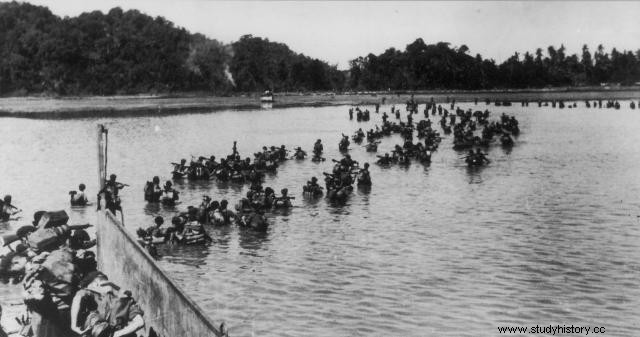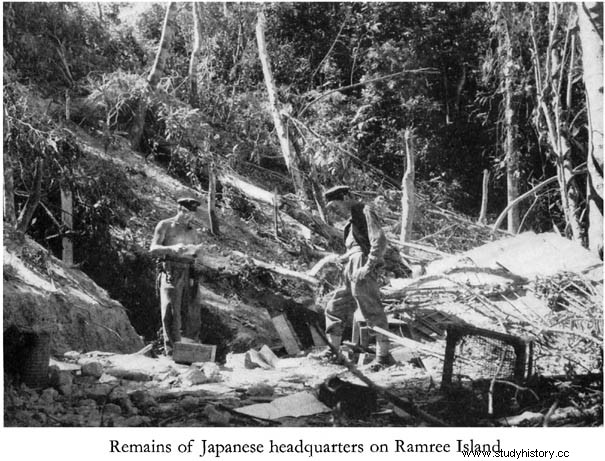In 1942, at the height of World War II on the Pacific front, the Imperial Army of Japan had taken the Burmese island of Ramree . In January 1945, and as part of the Burma Campaign , the allies began the offensive to recapture Ramree and its neighbor Cheduba. Although the defenders of the island put up great resistance, they could do nothing against the combined attack of the infantry and the naval and aerial bombardment… in just six weeks the British had recovered it.

Even so, the commander in chief of the Japanese forces along with about 900 men managed to retreat into the jungle. Harassed by the allies, they were forced to enter an area of swamps and mangroves where they met mosquitoes, snakes... and the largest of all reptiles:the saltwater crocodile . The allies surrounded the area, they just had to wait for the Japanese to surrender and leave but... they began to hear screams, screams, shots, more screams, splashes... crocodiles, enraged by the invasion of their territory, attacked the intruders. Only one Japanese soldier came out to surrender, coincidentally a doctor who spoke English from having studied in Britain and the US. Faced with that Dantesque spectacle, the British asked him to help them convince their compatriots to surrender, so he did... but no Japanese came out. In the words of the naturalist Bruce Wright who participated in the contest:
That night was the most horrible that any member of the Marine Corps crew had ever seen. The crocodiles, alerted by the sound of gunshots and the smell of blood, gathered among the mangroves […] Amidst the sporadic sound of gunfire could be heard the screams of the wounded men, crushed by the jaws of the huge reptiles [ …] With the ebb of the tide appeared the bodies of the dead and wounded who had been trapped in the mud […]
At dawn, the vultures made a good account of the human remains. Of the 900 Japanese who entered the jungle, only two dozen appeared alive, about 500 had managed to circumvent the allied siege and the rest... dead.

There are two versions of this story:that of the British historian McLynn Frank that does not doubt that the Japanese soldiers were attacked by the crocodiles but that they could cause a mortality of that caliber among armed men. And another, that of the Burma Star Association, an association of former British soldiers who served in the Burma Campaign, which confirms the facts described in this article.
